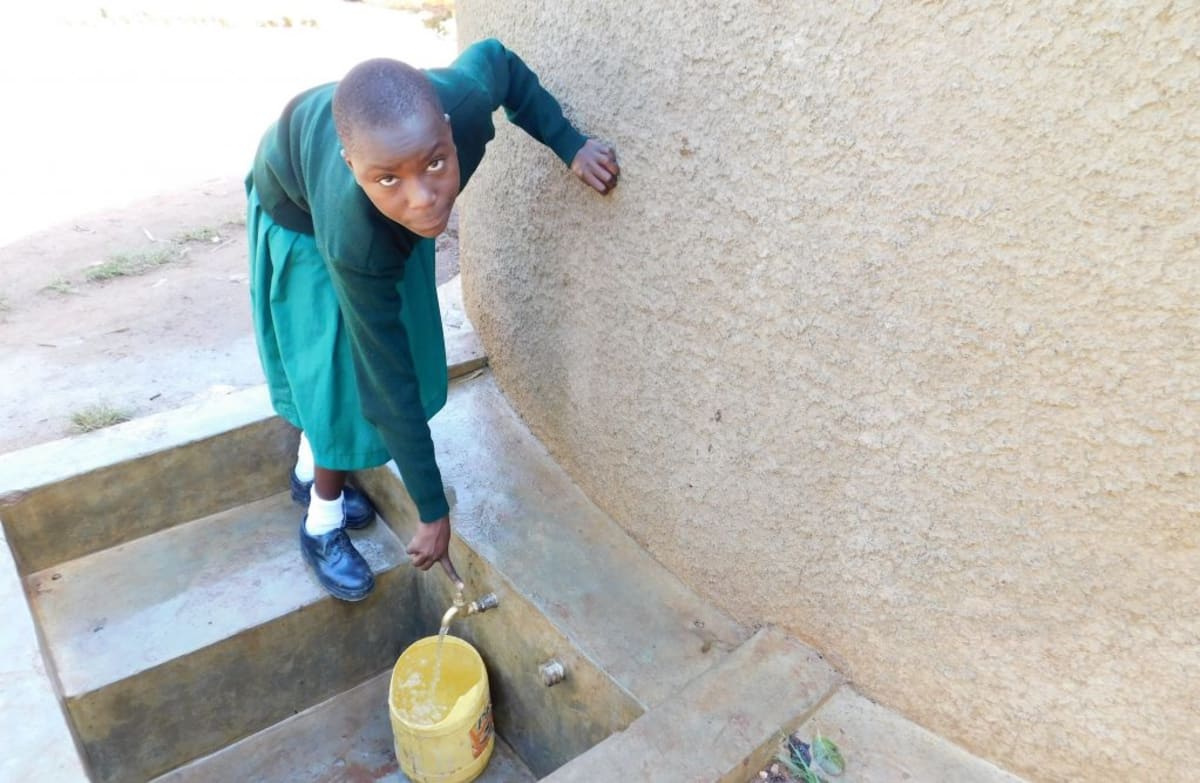Activity starts early for the families living around Bushili Primary School. Parents of Bushili wake up by 6am to prepare breakfast for their kids before engaging in their day to day activities. Bushili Primary School has a total of 851 students, of which 401 are boys and 450 are girls. There are 17 teachers and three support staff employed here.
Livelihoods in the community range from farming to small business, to informal labor. Students are to school by 7am to attend morning study hall. Regular lessons start at 8am.
Water
Bushili Primary School does not have water of their own. Instead, they must depend on a community borehole in Bushili Market. This well serves hundreds of people, and the school regrets having to send their students to get water. While this many people may have access on any given day, realistically a single water source can only support a population of 350-500 people.
To learn more about how we calculate the people served by a water project, click here.
According to Deputy Headteacher Mr. Nelson Onyango, most days they just can't follow their normal schedule.
"Sometimes the classrooms are not mopped simply because the county borehole in Bushili Market serves so many people," he said.
"When we send pupils to fetch water, they encounter long lines. Pupils waste a lot of their precious time lining up for water that could have been used for their education."
Sanitation
There are pit latrines for each gender that are made of bricks walls, concrete floors, and iron roofs. However, most of these are almost full. There are no hand-washing stations for students to clean up at either.
Here's what we're going to do about it:
Training
Training will be held for two days. The facilitator will use PHAST (participatory hygiene and sanitation transformation), ABCD (asset-based community development), CTC (child to child), lectures, group discussions, and handouts to teach health topics and ways to promote good practices within the school. The CTC method will prepare students to lead other students into healthy habits, as well as kickstart a CTC club for the school.
Hand-Washing Stations
The CTC club will oversee the new facilities, such as hand-washing stations, and make sure they are kept clean and in working condition. The two hand-washing stations will be delivered to the school, and the club will fill them with water on a daily basis and make sure there is always a cleaning agent such as soap or ash.
VIP Latrines
Two triple-door latrines will be constructed with local materials that the school will help gather. Three doors will serve the girls while the other three serve the boys. And with a new source of water on school grounds, students and staff should have enough to keep these new latrines clean.
Rainwater Catchment Tank
A 50,000-liter rainwater catchment tank will help alleviate the water crisis at this school. The school will also help gather the needed materials such as sand, rocks, and water from the spring for mixing cement. Once finished, this tank can begin catching rainfall that will be used by the school’s students and staff.
We and the school strongly believe that with this assistance, standards will significantly improve. With clean water and high standards of cleanliness, students’ good health will give them the chance to earn better grades and live a better life.
This project is a part of our shared program with Western Water And Sanitation Forum (WEWASAFO). Our team is pleased to provide the reports for this project (formatted and edited for readability) thanks to the hard work of our friends in Kenya.

 Rainwater Catchment
Rainwater Catchment
 Rehabilitation Project
Rehabilitation Project




































